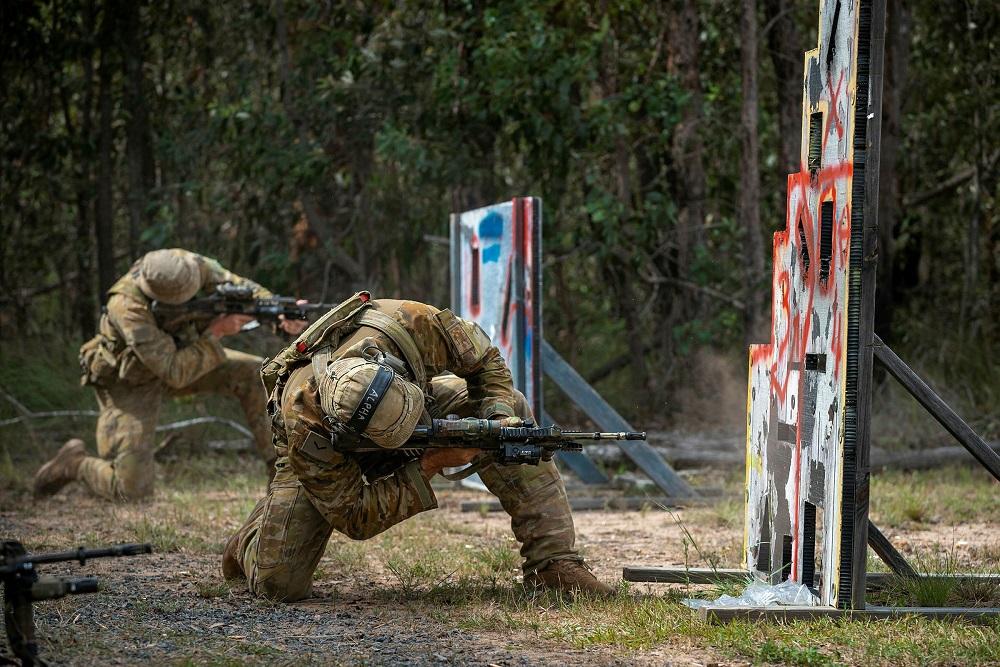
Sea state
The Royal Australian Navy has received the fourth of eight evolved Cape-class patrol boats built by Austal Australia at its Henderson shipyard in Western Australia. The vessels’ enhanced capabilities over the benchmark Cape-class patrol boats include improved crew amenities and accommodation for 32 people. The vessels will be deployed on missions such as constabulary operations and maritime patrols.
Prime Minister Anthony Albanese has reiterated that Australia will have full operational control over its nuclear-powered submarines in the event of any disagreement with the US and UK over military strategy. This follows criticism from former prime ministers Paul Keating and Malcolm Turnbull, who argued that Australia’s acquisition of the boats under the AUKUS pact could make it more dependent on the US.
Flight path
Boeing has announced that it will stop production of the F/A-18 Super Hornet in late 2025 to focus on developing sixth-generation military aircraft. Australia was among the first countries to purchase the original Hornet. The Royal Australian Air Force currently operates 24 Super Hornets in air-combat roles, including close support of ground troops and interdiction of enemy supply lines. Boeing will continue rolling out upgrades and introducing Block III capabilities to the Block II F/A-18s over the next decade under a service-life-extension program.
The RAAF will trial reduced initial training times for recruits and officers to give new aviators a modernised and streamlined introduction to the service. In the first part of 2023, the 1 Recruit Training Unit course will be shortened from 11 weeks to nine and the Officer Training School course from 17 to 14 weeks. The trials coincide with broader efforts by the Australian Defence Force to urgently boost ranks to fill new capability requirements identified in the soon-to-be-released defence strategic review.
Rapid fire
France and Australia have committed to jointly providing Ukraine with 155-millimetre artillery ammunition to help in its defence against Russia. The announcement followed more than a year of strained Franco-Australian relations after Australia’s 2021 decision to cancel its procurement of French-made diesel-powered submarines. Defence Minister Richard Marles noted that the plan to jointly supply ammunition was an illustration of the growing relationship between Australian and French forces. He also emphasised the two countries’ commitment to work together to build the capability of the defence forces of Pacific island countries.
Soldiers from the 8th/9th Battalion of the Royal Australian Regiment and the 1st Regiment of the Royal Australian Artillery participated in Exercise Ram Shot last month. Exercises included shooting through obstacles at moving targets. The focus on basic live-fire skills is intended to better equip soldiers to participate in major exercises such as Talisman Sabre later this year and to improve combat readiness and interoperability with the US and other allies.
Final frontier
NATO is launching an initiative it’s calling Alliance Persistent Surveillance from Space, or APSS, to gather and distribute space-based data for the alliance command structure. The project has received support from 16 NATO member states, along with Finland and Sweden. Luxembourg will provide €16.5 million ($25.9 million) to establish an expert team and integrate the alliance members’ space systems. A memorandum of understanding for APSS is expected to be signed soon. NATO says Russia’s invasion of Ukraine has further highlighted the necessity for intelligence gathered from space not only to support military operations but also to track and aid internally displaced populations and help reinforce critical infrastructure.
China has successfully tested a new technology designed to deceive enemy missile-defence systems during a nuclear attack. The ‘Phantom Space Strike’ system uses three spacecraft to emit fake target signals, allowing the real weapon to reach its target without interruption. The technology has raised concerns about potential nuclear escalation from rival powers. China’s development of manoeuvrable and short time-of-flight systems has led to suggestions that Australia complement its reliance on the US space-based early-warning system by developing its own capability using new sensors.
Wired watchtower
More than 60 countries have signed a statement urging international cooperation on the responsible use of artificial intelligence and autonomous weapons in the military at the first international summit on military AI held at The Hague. The declaration was made in part because it appears likely that fully autonomous killer drones will be used in the Russia–Ukraine war, which could fundamentally alter the nature of warfare. However, the statement is not legally binding and places no tangible limitations on states’ use of military AI.
The Australian government has announced the launch of a new cybersecurity agency, led by a national coordinator, to manage the whole-of-government response to major state-sponsored cyberattacks. The agency, to be housed within the Department of Home Affairs, is part of government efforts to bolster national cyber resilience after a 13% spike in cybercrime reports last year and the Optus and Medibank data breaches. The government has suggested that new cybersecurity legislation is likely to be introduced soon.